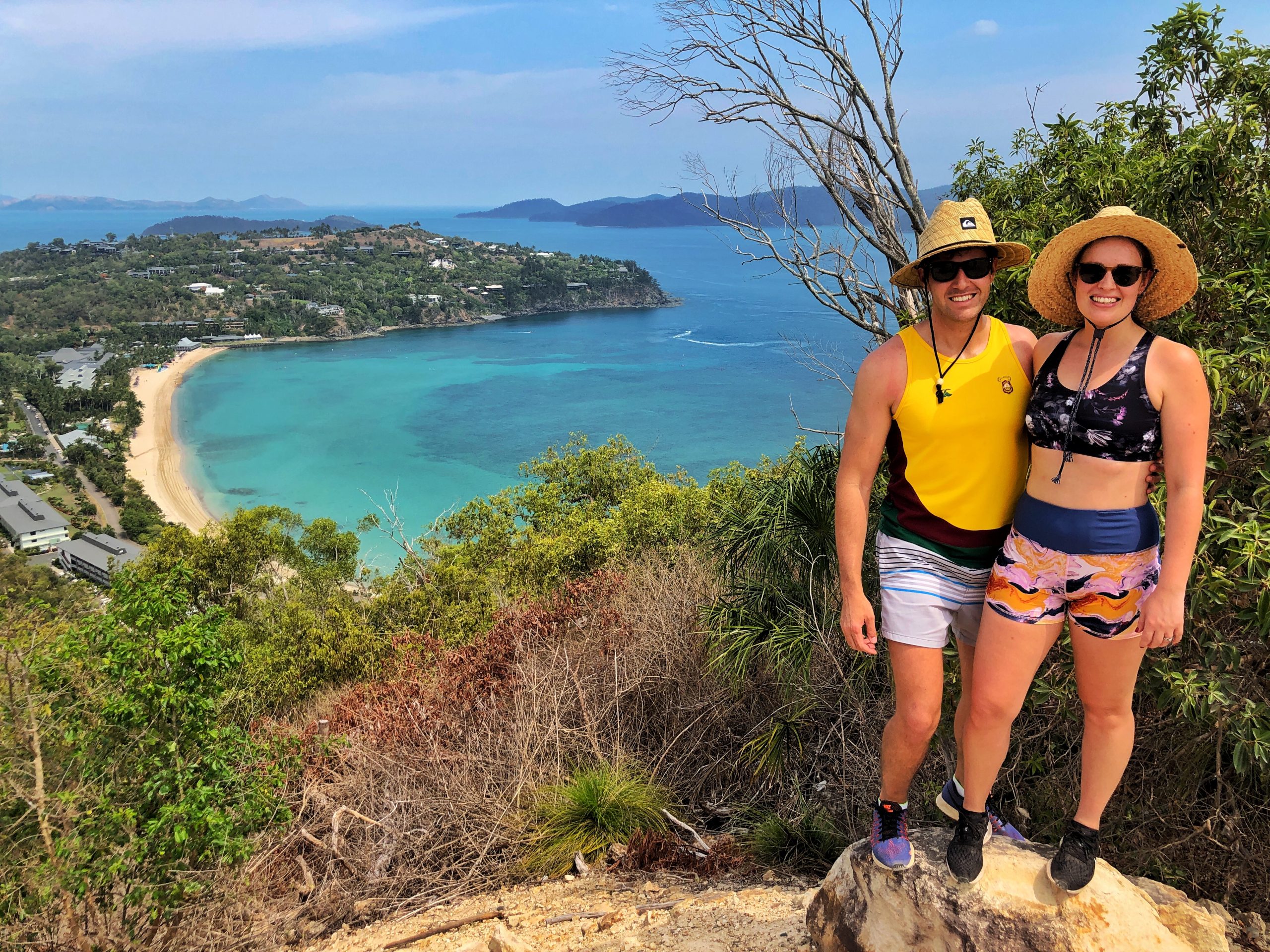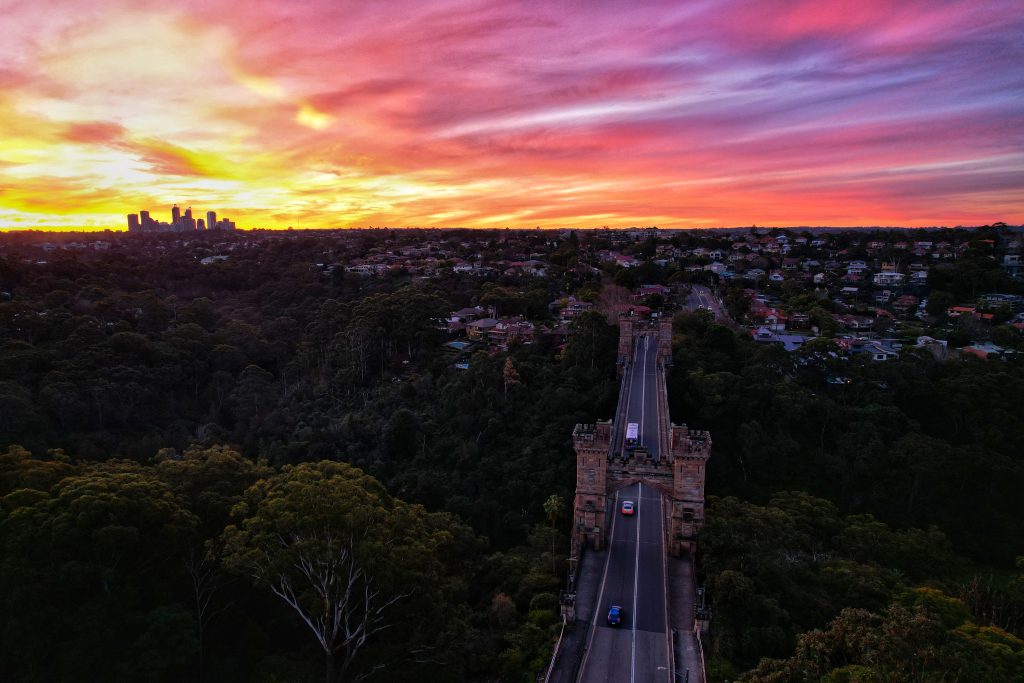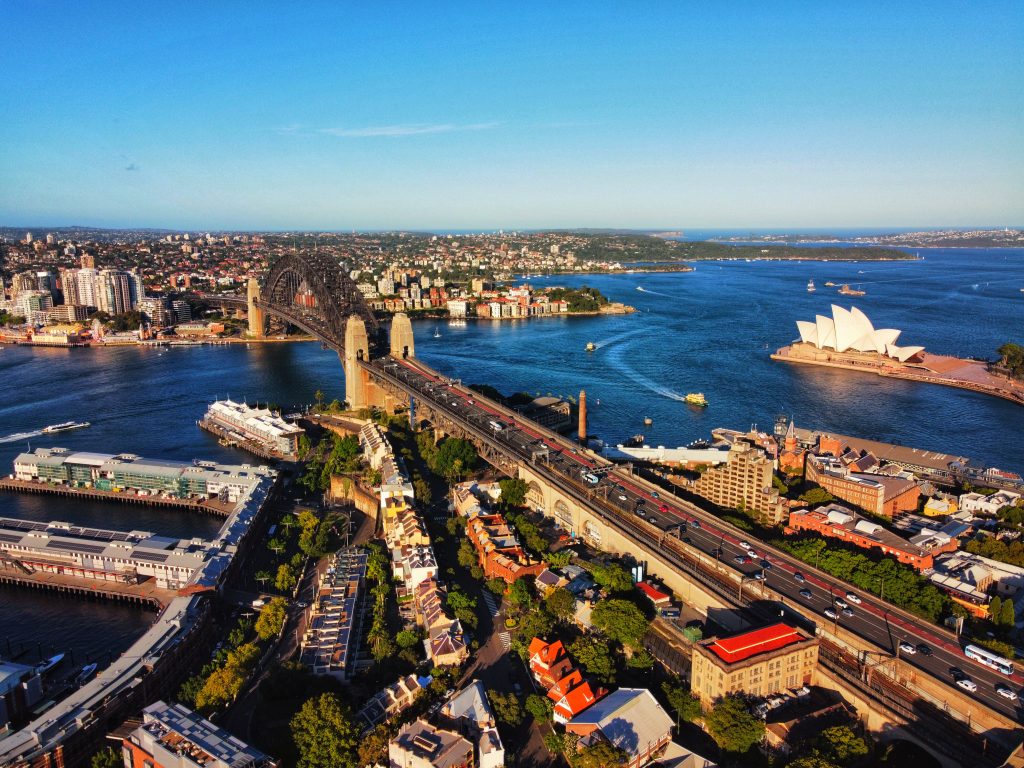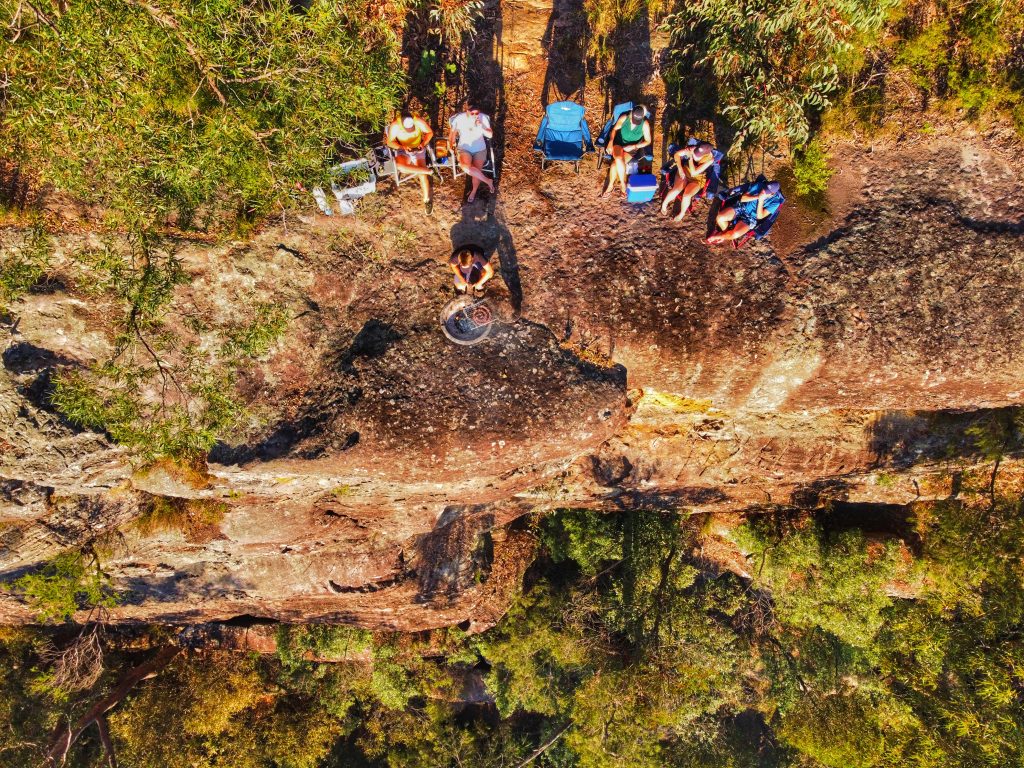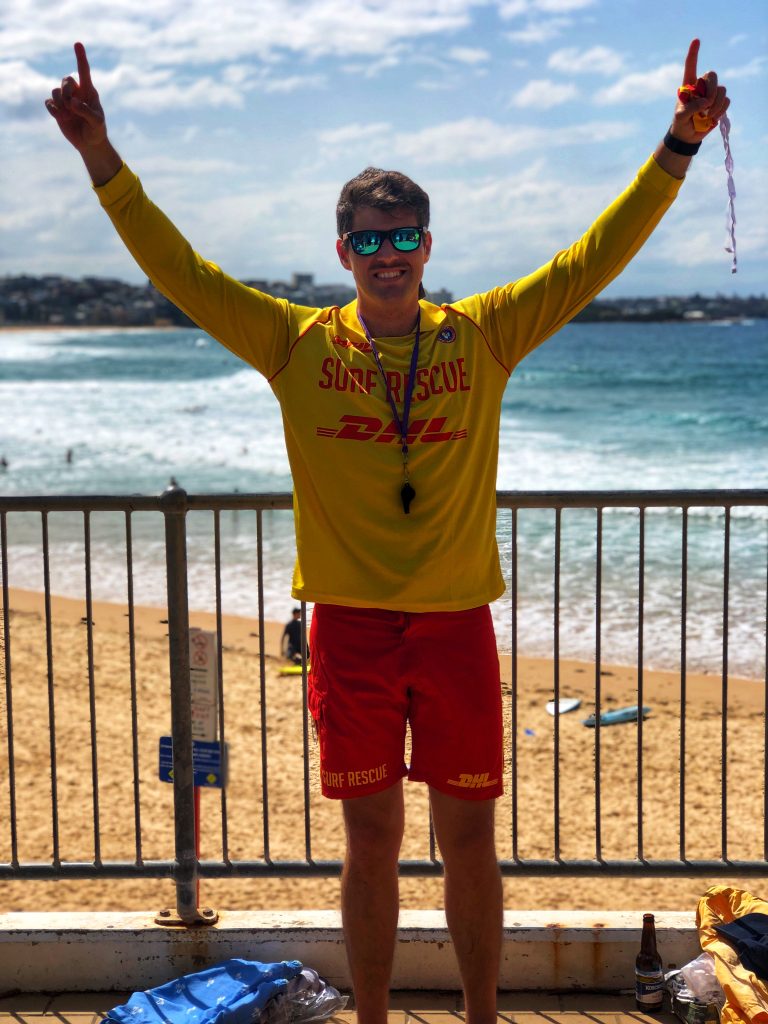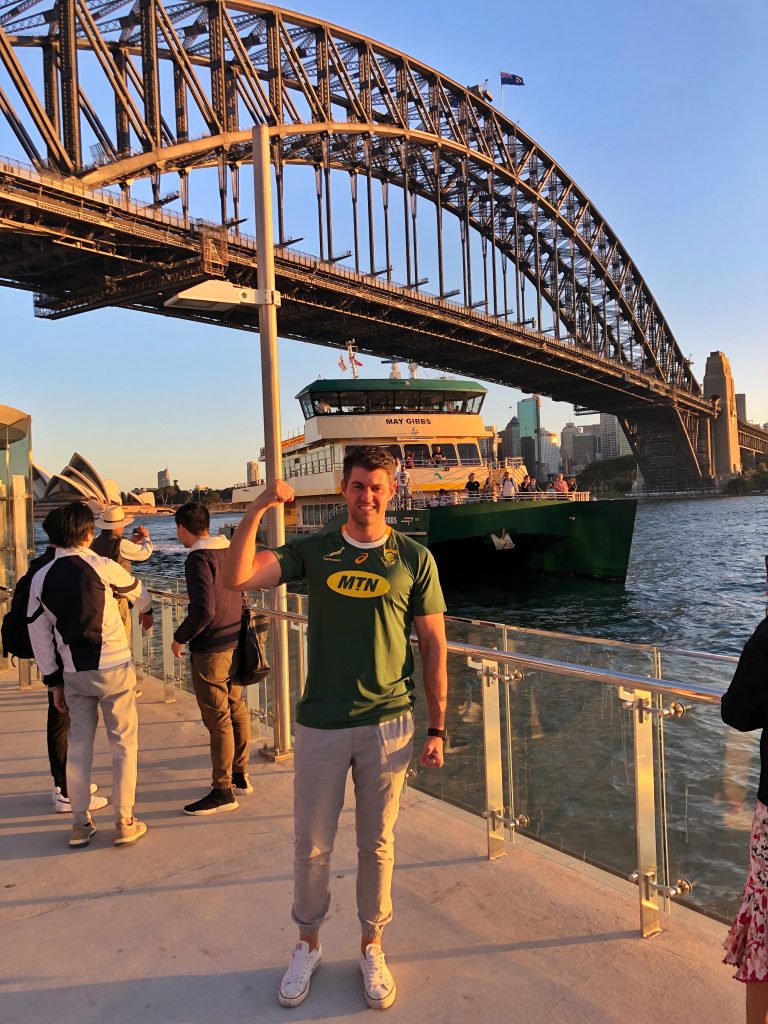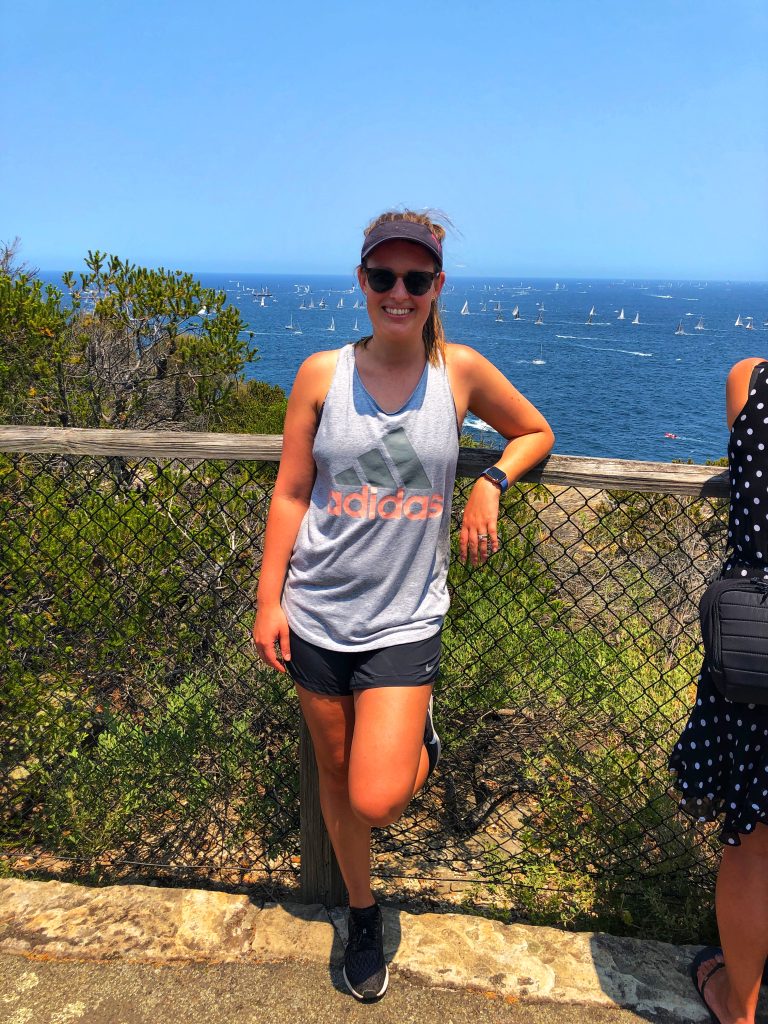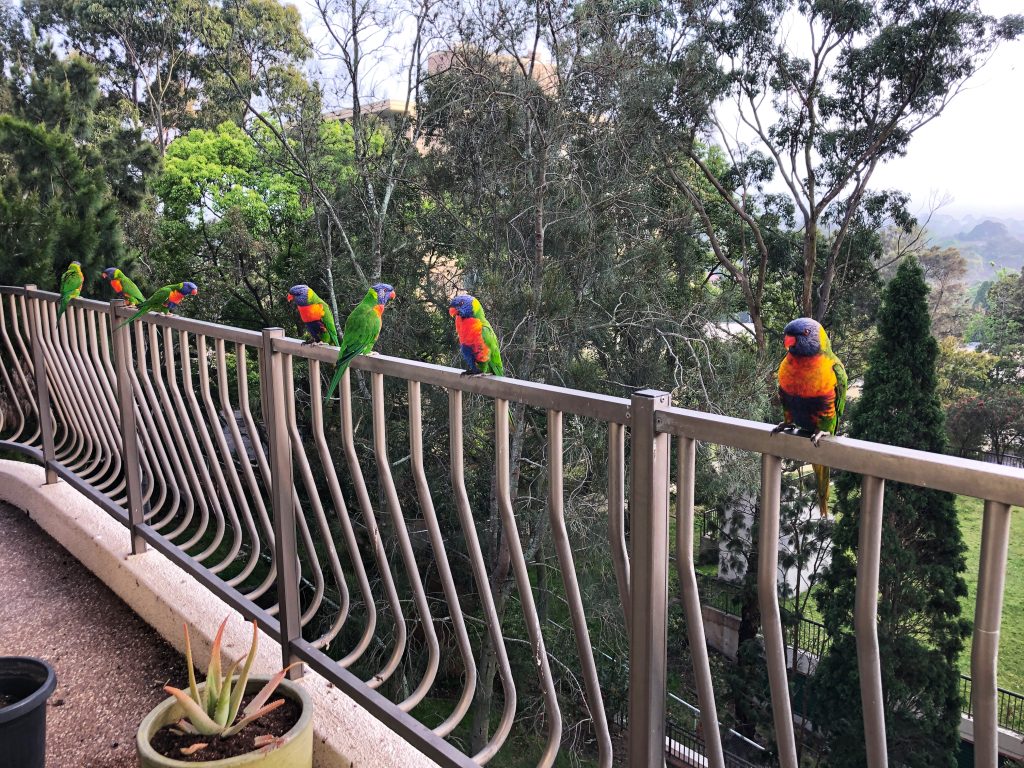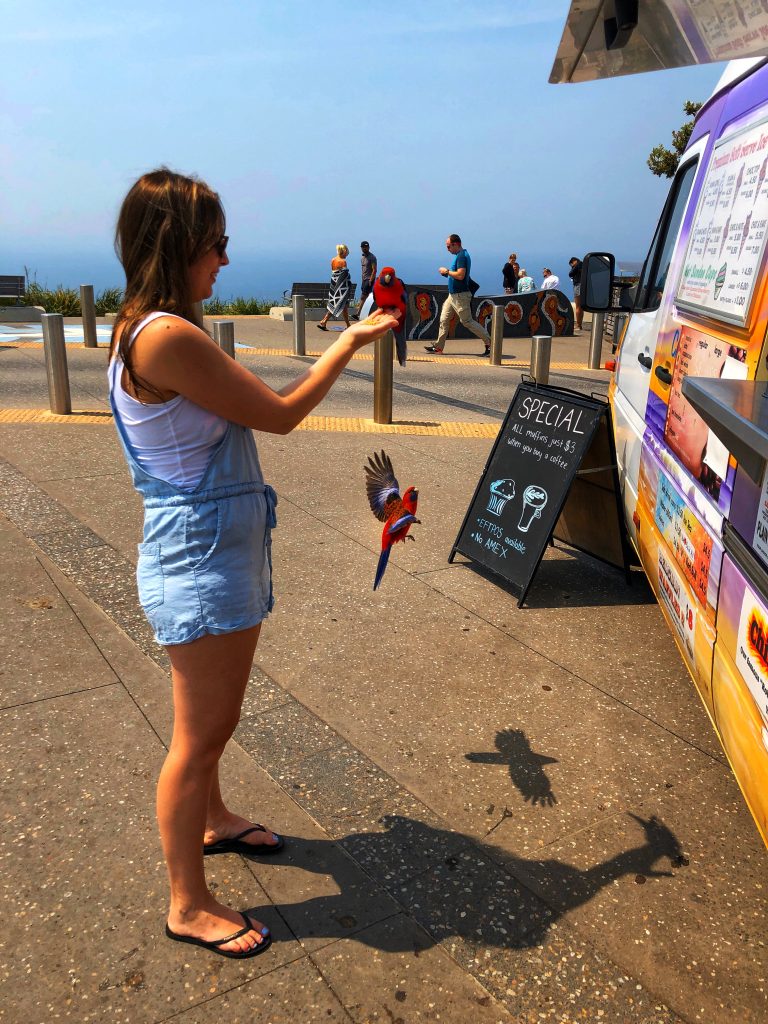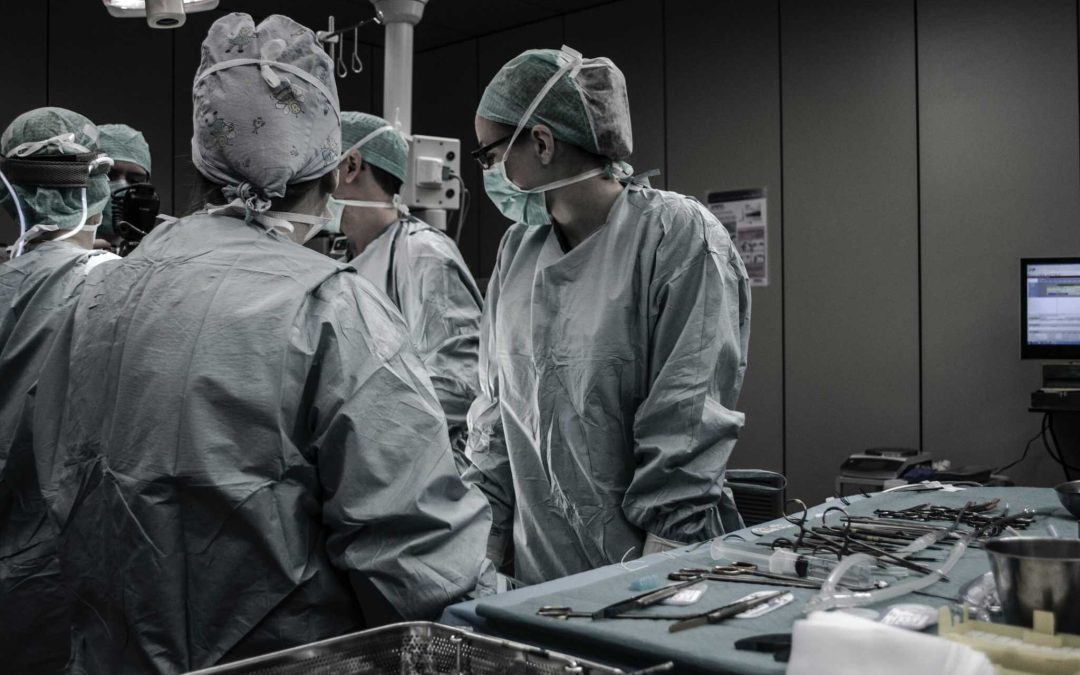Out and About is a column where we chat with people who currently live abroad, or who used to live and work there. This week we chat with Schalk Bruwer, who currently lives in Sydney, Australia. He tells us how he has so much more appreciation for his language, culture and heritage since moving abroad.
Hello Schalk, thank you for all the photos of beautiful views abroad you have shared with us. Tell us more about where you live and why you decided to go there.
In 2017 my fiancé and I (my wife since December 2018) started making plans to work overseas to get a year or two’s experience in order to improve our chances of good job opportunities when returning to South Africa. We considered larger cities to get the best possible exposure. But we both considered our options, had online interviews, and tried to read up as much as possible about how things worked.
We chose Sydney because we both managed to get jobs here, with some of the other countries we considered only one of us qualified for a job. While we were waiting for other countries, we decided to give Sydney a chance.
We currently live in a suburb called Dee Why, it takes me about 40 minutes into the city with the bus, and I walk 1 km to the bus stop. It is the sacrifice we had to make in order to live close to an affordable beach. We are about two minutes from the beach, although we do not have a view from our flat.
We have been living in Sydney for just over four years now during which I have been home three times and my wife five times.
How did you experience the emigration process to Australia?
The process initially took about six months from the first interview to the day we arrived in Australia. There are many requirements such as English tests that had to be passed. But there is always a variety of visas one can get to enter Australia, and their requirements are different. For instance, if you want to be a teacher in Australia you need to write the difficult English test and score quite high in the test.
To adjust in a new country can be challenging, what was the hardest thing for you to get used to abroad?
Indeed. The first three to six months were still very exciting because everything was new, amongst others we took the bus or train every day because it was something we had not done before. After a few months however, we started missing our family and our culture. One of the main things for us is the time zone and the fact that people here do not spend as much time on news and politics as they do at home. It was noticeable that people spend more time outdoors here. It was strange but also nice to be able to walk around at night without worrying about your phone or your wallet.
We also only bought our first car after 16 months (a ten-year-old Polo). It was a great change and very nice to have freedom, as we were limited to airline and bus routes for holidays before getting our car. We did however rent a car once or twice in the past. Law enforcement here is also different. For instance, if you park somewhere one minute longer than you are supposed to, you will get a fine. The same goes for speeding or jaywalking! I have received four parking tickets here so far. I never thought time limits would be enforced. The way I grew up you just parked wherever you found a spot and that was it!
Are there any South African shops close to you where you can buy comfort food such as biltong?
Here are several shops and I make sure to visit them about two or three times a month. Within an hour’s drive I can find about ten South Africa shops, there are only two of these which I haven’t visited yet. It is always a nice experience to buy biltong and other stuff, and to try different products and recipes, including wine, brandy or a beer now and then.
My closest shop is currently African Vibe (@africanvibesydney).
Previously the shop closest to me was Springbok Delights.
Then there is also the Checkers Hyper equivalent of South African shops, called Biltong and Boerewors. It is almost three to four times larger than the other shops and they make bunny chows, vetkoek, etc. You can also hear nice Afrikaans music and “boeremusiek” being played inside. They sell anything from CDs to spices to sweets, and their variety of wine, brandy and beer will leave Tops red-faced. Over weekends they also braai boerewors rolls outside, delicious! It means so much to me when I experience this. That is why I always support these shops, apart from the fact that I love their products!
Tell us about your job and a typical day in your life?
I studied in South Africa to be a chartered accountant and worked for PwC in Pretoria for three years, although my family lived in the Cape. It was partially to improve my chances of going overseas.
About six months ago I resigned from PwC Sydney, and I currently work for a large construction firm’s financial department. The working hours are way better – it is now about 40 hours a week, down from 70 hours a week in my previous job. So yes, I have more family time which I really enjoy, although I enjoyed less family time the past three and a half years than I did in SA. I would also say it depends on your type of job and your employer, but from my perspective people here work very hard – harder than in SA. I also pay about 3–5% less tax here, but you also cannot compare it by simply converting the exchange rate.
Since Covid came along I had the opportunity to work from home. So I have two options – when I work from home I get up at 07:00, walk to the beach, walk around the block, buy a coffee (A$4,50), before sitting down at my desk and starting to read my emails. Then there are obviously many emails and phone calls before I can close my laptop at 17:30 to 18:00.
Most jobs in Sydney start at 09:00 in the mornings.
When working in the office (about 2/3 times a week), I wake up at 06:30 and then walk to the bus stop at 07:30, which normally takes about 15 minutes (1 km). I then catch the bus, which costs me about A$4. I arrive at the office at 08:45 (latest) after walking another five minutes from the nearest bus stop to my office.
I also sell photos by printing drone photos on canvas. My products are on my Instagram and Facebook pages: @aerialssydney.
How did you fit in and make friends in the process?
The first three to six months was still exciting because everything was new, but after a few months we started missing our friends and culture. We started reaching out on Facebook and found out about an annual braai in Sydney where about 150 South Africans get together and braai. We met a few friends there, amongst others someone who went to the same school as I did, although we did not know each other while at school.
Furthermore, you need to work hard to make new friends, you have to be assertive and be willing to go out of your way to make friends.
We find it is easier to make friends with people who also haven’t lived here for very long. You usually have the same interests and mindsets.
How do the accommodation options in Sydney compare to that of South Africa?
It is very different. We live close to bus and train routes so we can commute to our jobs. For instance, I cannot drive to work because there is no parking available, only 2% of employees have parking and they are in top management. They probably also pay for it. If I had to pay for parking in the city, it would cost me over A$50 (or R500) per day, which is just too expensive. A return ticket on the bus works out R80 per day from door to door. We live in flats – our accommodation has varied from a one-bedroom with no garage to two bedrooms with parking. The extra space we have now is pure bliss, but we plan on moving further from the city where we will be able to have more space and our own yard for the same price. Strangely enough, rent is calculated in cost per week, although the shortest contract we were able to get with someone for rent was six months. We do however have one requirement, and that is that we need to have a balcony so I can use my Weber during weekends.
Is it expensive to live in Sydney?
It is expensive but rent and alcohol are the most expensive things in comparison with South Africa. A regular case of beer costs A$50 and a packet of cigarettes about A$30. It is quite hectic, the sin taxes are very high here. Our rent is three times as much as what we paid in SA and our salaries are definitely not three times what it used to be. Petrol is currently A$2,4 per litre, but the road insurance fund is not included in the petrol price. We pay an annual amount of between A$400 to A$1 000, depending on how expensive your vehicle is, where in SA it is included in the petrol price.
As for the rest, some types of vegetables and raw meat such as chicken are affordable and quite comparable with SA. Generally, things are expensive but even more so when there is labour involved, as the minimum loan is very high. For instance, it costs A$35 to have a haircut and the only way to get it done cheaper is when your wife does it. The same goes for car services or dining out, since it takes time and effort from chefs and waiters. Biltong will cost you around A$60 per kilo, therefore many people make their own biltong – me too sometimes.
What South African things do you miss the most?
Family and friends!! The time difference is also something that makes communication difficult. For six months of the year Sydney is eight hours ahead of South Africa and for the other six months it is nine hours ahead, which means that I can only talk to someone in South Africa between 16:00 and 22:00. A part of this time is spent at work, or I want to spend time with my wife or jog/exercise, so the window for phone calls is rather small unless you make some sacrifices.
I listen a lot of Afrikaans music, especially in the car, and very loud! I also braai very often – every weekend, with charcoal or wood if I can get some and my neighbours do not complain about the smoke. I also enjoy a good brandy to remind me of the good times in SA.
I have so much more appreciation for my heritage and culture since coming to Australia. I read a lot about our history and the origin of our culture. I am proudly Afrikaans, and I will always be.
Who knows, maybe we will move back to SA a few years from now, since we went there in December and enjoyed it so much to spend time with family and friends, and being in our beautiful country!
READ ALSO: Out and About: An email from Brunei

